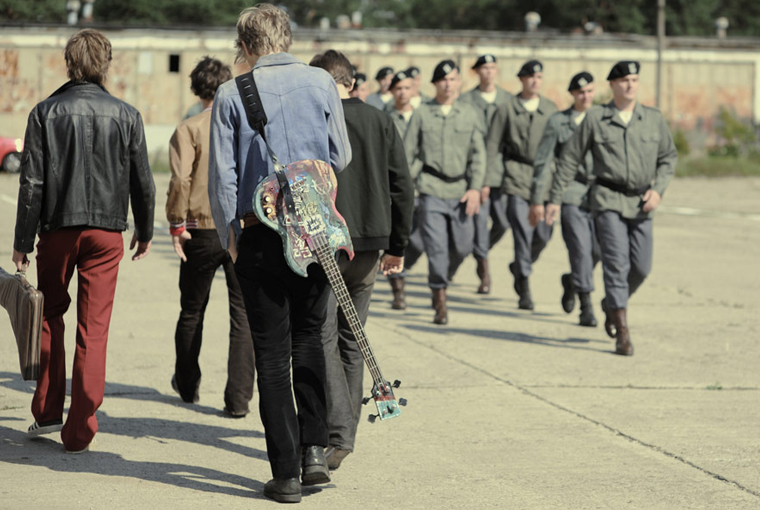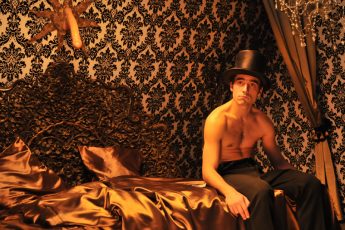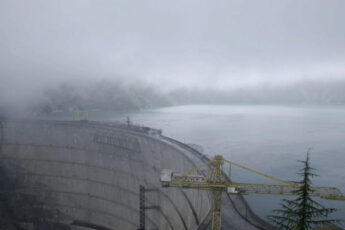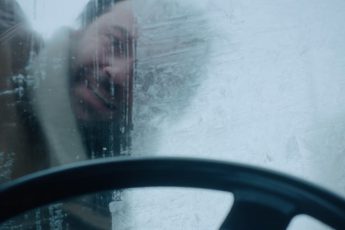Polish Spring
Jacek Borcuch’s All That I Love (Wszystko, co kocham, 2009)
Vol. 7 (July 2011) by Colette de Castro
All that I love is based on director Jacek Borcuch’s memories of being seventeen. The film’s protagonist, the similarly named Janek (Mateusz Kosciukiewicz), is a schoolboy and member of a punk band. The first scene shows four young boys playing punk music in an abandoned bus. The lyrics of their music go something like: «We don’t want to do what you say, we don’t want to be ruled by you or the teachers or Winnie the pooh». Typical of punk music, there’s a lack of melody and a childishness to the lyrics they offer so unashamedly that it’s almost cool. Janek, the vocalist, is a sensitive kid, the kind of boy who would seem more in his element singing in an emo band: strangely though, it is exactly this misplacement that makes the film so poignant.
Set during the uprisings in Poland in 1981 around the Solidarity labour movement and the implementation of the martial law when a curfew was put in place, telephone communication was forbidden, and Solidarity members were persecuted and often put in jail. All of these elements are illustrated in the film, and Janek manages to get out of some tricky situations to do with the curfew because of his father’s military position. Ideas of censure and corruption are woven into the plot, for example when Janek’s band is forbidden from playing at the school dance because of an altercation he has with a neighbour over an older woman.
Janek has conflicting ideals. His father, whom he secretly admires, is a communist enforcer, while his girlfriend, Basia, is from a family involved with the Solidarity movement. Basia’s father is taken away because of his affiliation with the anti-soviet protest movement, so her mother prevents the young lovers from seeing each other. This story derives from Borcuch’s own experience. In an interview he talks about that time saying: “her father hated me, we were like Romeo and Juliet or something”.
Janek and the group’s guitarist have a Lennon / McCartney type relationship. In one particularly beautiful scene their exclusivity is expressed as they sit looking out over the cold sea. Janek’s friend has just been beaten by his father, he asks Janek “not to tell the others”. Punk music is really important to these boys, and through the harsh winter where things are rapidly changing in Poland and their lives, it is the one thing that keeps them focused where they might otherwise have gone astray. As the film progresses, the viewer begins to understand how such seemingly meaningless music, devoid of real political direction and driven by a kind of grungy pompous theatricality, can actually mean a lot and be about love. Punk is a tool for them, they genuinely believe they are living in an unfair society where they can only express their ideas and emotions through music. When Janek walks Basia, his love-interest, to the dock after school one day, they start chatting about romance, he admits his band is called ‘ATIL’ which stands for ‘All, that I love’, she replies « you see, you are romantic », and indeed Janek is very romantic. It’s like they are simply doing what teenagers do best, by fighting what they perceive as nihilism with nihilism.
The title of the film is reminiscent of a line in the Edgar Allen Poe poem Alone : “And all I loved, I loved alone”. Like the poem, the film expresses the deep feelings of solitude that come from a love or passion that cannot be shared, a part of the pain of growing up. The shock of learning that every emotion, good or bad, love or hate, can never be fully shared by another person: “From childhood’s hour I have not been / As others were; I have not seen /As others saw”. The film begins in spring and ends the following spring. During the harsh winter, Janek has great changes in his life. He falls in love with a girl and discovers protest music. The Spring at the end of the film represents hope for a free Poland and we hope a new love for Janek.




Leave a Comment